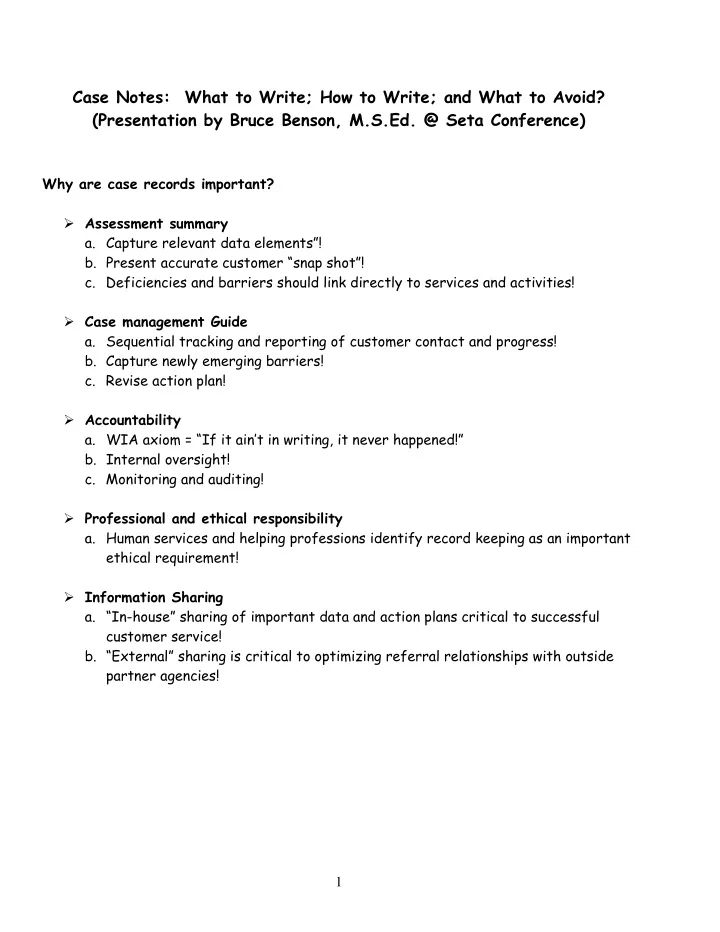

Case Notes: What to Write; How to Write; and What to Avoid? (Presentation by Bruce Benson, M.S.Ed. @ Seta Conference) Why are case records important? Assessment summary � a. Capture relevant data elements”! b. Present accurate customer “snap shot”! c. Deficiencies and barriers should link directly to services and activities! Case management Guide � a. Sequential tracking and reporting of customer contact and progress! b. Capture newly emerging barriers! c. Revise action plan! Accountability � a. WIA axiom = “If it ain’t in writing, it never happened!” b. Internal oversight! c. Monitoring and auditing! Professional and ethical responsibility � a. Human services and helping professions identify record keeping as an important ethical requirement! Information Sharing � a. “In-house” sharing of important data and action plans critical to successful customer service! b. “External” sharing is critical to optimizing referral relationships with outside partner agencies! 1
How to Write Case Notes Write Case Notes that are: • Clear and brief • Concise, precise • Accurate and complete • Timely • Readable – acceptable grammar What you should avoid: • Avoid “diagnoses” • Avoid “Clichés” • Avoid “street talk” • Avoid Jargon • Avoid Stereotypes and prejudices Case Notes should: • Describe behaviors reported by customer and collateral contact! • Record statements made by customer! • Record your observations! • Substantiate conclusions and judgments! • Link services to documented deficiencies! Strong verbs to use… • Advised Focused • Assessed Identified • Assisted Recommended • Clarified Referred • Confronted Reflected • Counseled Structure • Discussed Summarized • Directed Supported • Encouraged Urged 2
How to Write Case Notes Words to avoid… • Abnormal Impulsive • Abusive Irrational • Anxious Overwhelmed • Dangerous Resistant • Delusional Suicidal • Demanding Threatened • Disturbed Troubled • Hysterical Uncooperative • Immature Unfit Considerations… Federal Privacy Act of 1974 � Family Educational Rights and Privacy Act of 1974 � Ethical Guidelines and practices � Privacy – “The right of persons to choose what others may know about then and � under what circumstances. The central notion is the freedom to determine the disposition of personal information.” (Stadler in Herlihy and Golden, 1990) Confidentiality – “The right to privacy in general contexts is otherwise known as � confidentiality in the context of professional relationships. Confidentiality highlights a professional ethical responsibility to respect the client’s right to control personal information and access to it.” Stadler in Herlihy and Golden, 1990) 3
Recommend
More recommend